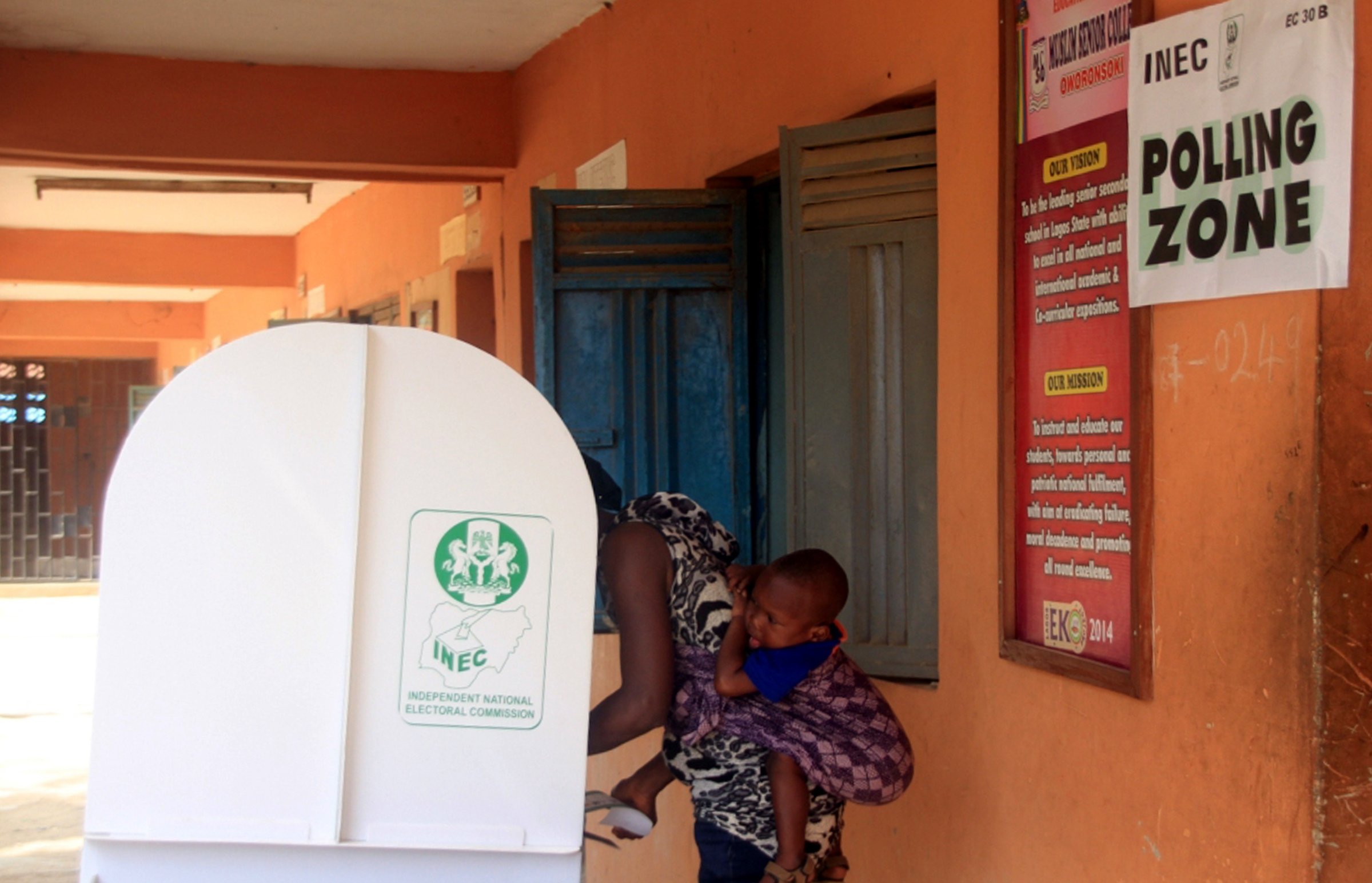
The stampeding at polling booths, misuse of firearms by security agents, riots, and hijacking of voting materials could make any woman afraid to go out and cast her vote in Nigeria. But when I went to vote in the 2015 general election, my fear was not the violence—but the exclusion.
I feared that my husband, who is visually impaired, might not be able vote without my help. Our election system in Nigeria does not enable people with disabilities to exercise their franchise independently. Not only are ballot papers not accessible to blind people, most of the buildings where the polling units are located are physically inaccessible to people with wheelchairs. Worse still, the election officers do not know how to relate to people with disabilities or their assistants.
Leading up to the election, TV stations were broadcasting jingles about provisions for people with disabilities. People with disabilities, pregnant women, and senior citizens above the age of 60 would not have to queue to vote.
A DIFFERENT REALITY
I was supposed to be excited about this election, but I still feared the looks on the faces of the election officers when I appeared at the polling booth with my husband. I saw my fears come through when a security officer tried to bully me, insinuating that I was taking advantage of my husband’s disability to shunt the queue.
Our election law states that the person with a disability can be assisted to vote by a person of their choice. The security officer did not understand that I have to serve as an accessibility bridge for my husband since the election commission does not provide accessible voting materials like ballot papers in Braille. My husband needs my help to put his thumbprint where he wishes.
PREACHING THE GOSPEL OF INCLUSIVE POLICY
All this happened because of low awareness about disability. I now know the source of my fear and I am ready to hit it head on.
We hear the voices of persons with disabilities and a few service providers, but their relatives, who these disabling conditions affect by proxy, do not speak out. My experiences are shared by many relatives—spouses, parents, children, and siblings. I am building a network of voices to increase awareness on disability. I want the families of people with disabilities to understand what speaking out can do.
People sometimes ask me what stake I have in disability rights advocacy. I tell them people frequently transfer their perceptions of people with disabilities on their relatives, so I have a duty to promote a positive perception. If people with disabilities have inclusive access to social amenities they become an asset to their families and society in general. If people with disabilities are independently productive, their relatives become more productive. So ask me again what is my stake?
MY DREAM FOR THE FUTURE
Although the election has come and gone, our fears linger on.
The World Health Organization estimates that about 15 percent of the world’s population lives with disability. When we include their relatives, the number of people affected by disability is even higher.
During the last election, as a member of a disability policy advocacy partnership, I engaged the Independent National Election Commission on conducting a free, fair, and inclusive election process. We conducted research and produced a checklist and guidelines on inclusive elections. The commission welcomed this work and implemented some of the recommendations, but it’s not enough.
I founded the Disability Awareness and Development Initiative so that people with disabilities like my husband can actively participate in elections in an inclusive environment. I envision ramps and lifts in elevated buildings; election materials available in large print, audio, and Braille formats; and sign language interpreters available in every election campaign.
My hopes go beyond elections. My heart skips when we have to access any public infrastructure. Imagine if those of us living with and without disabilities join our voices together. We can dream of a day when we can all vote—and live our lives—without fear of exclusion.
Emmanuella Akinola is a contributor from Nigeria. This piece was originally published on World Pulse. Sign up to get international stories of women leading social change delivered to your inbox every month here.
More Must-Reads From TIME
- What Student Photojournalists Saw at the Campus Protests
- How Far Trump Would Go
- Why Maternity Care Is Underpaid
- Saving Seconds Is Better Than Hours
- Welcome to the Golden Age of Ryan Gosling
- Scientists Are Finding Out Just How Toxic Your Stuff Is
- The 100 Most Influential People of 2024
- Want Weekly Recs on What to Watch, Read, and More? Sign Up for Worth Your Time
Contact us at letters@time.com